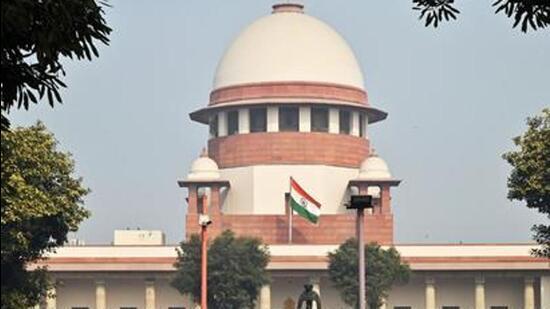
Calling someone ‘Miyan-Tiyan’ & ‘Pakistani’ not an offence: Supreme Court
In a recent development, the Supreme Court of India has ruled that calling someone “Miyan-Tiyan” and “Pakistani” is in poor taste but does not constitute an offence. This decision was made in the context of a case where an 80-year-old man was accused of hurling abuses at an Urdu translator in Jharkhand.
According to reports, the translator had filed a case against the 80-year-old man, claiming that he had used derogatory language against him, including calling him “Miyan-Tiyan” and “Pakistani”. However, the Supreme Court has now dismissed the case, stating that the remarks did not amount to hurting the religious sentiments of the translator.
The case was filed in the Jharkhand High Court, where it was dismissed, and subsequently, the translator appealed to the Supreme Court. The top court has now upheld the decision of the High Court, saying that the remarks were indeed in poor taste, but they did not constitute an offence.
This decision has sparked a heated debate on social media, with many people questioning the court’s stance on the matter. Some have argued that the use of such language is not only offensive but also reflective of a deeper societal problem, where many people harbor discriminatory attitudes towards Muslims and Pakistanis.
Others have argued that the court’s decision is a welcome step towards promoting tolerance and inclusivity in society. They point out that the court has struck a balance between protecting people’s sentiments and upholding the principle of free speech.
The Supreme Court’s decision is a significant one, as it highlights the need for a nuanced approach to addressing issues of religious intolerance and hate speech. While it is important to protect people’s religious beliefs and sentiments, it is equally important to promote a culture of tolerance and inclusivity in society.
In recent years, India has witnessed a rise in incidents of hate speech and religious intolerance, which has had serious consequences for the country’s social fabric. The Supreme Court’s decision is a reminder that the law must be applied in a way that balances the rights of individuals with the need to promote a harmonious society.
The case also raises important questions about the nature of hate speech and religious intolerance in India. While it is true that the use of derogatory language is offensive, it is also important to recognize that such language is often used to express deep-seated prejudices and biases.
In this context, the Supreme Court’s decision may be seen as a missed opportunity to address the root causes of hate speech and religious intolerance in India. By dismissing the case, the court has failed to send a strong message against the use of derogatory language, and instead, has reinforced the notion that such language is acceptable in certain contexts.
Despite these criticisms, the Supreme Court’s decision is also a reminder of the importance of protecting free speech in a democratic society. The court has struck a balance between protecting people’s sentiments and upholding the principle of free speech, which is essential for promoting a culture of tolerance and inclusivity in society.
In conclusion, the Supreme Court’s decision that calling someone “Miyan-Tiyan” and “Pakistani” is not an offence is a complex one that raises important questions about the nature of hate speech and religious intolerance in India. While it is important to protect people’s religious beliefs and sentiments, it is equally important to promote a culture of tolerance and inclusivity in society.
As we move forward, it is essential to recognize that the use of derogatory language is not only offensive but also reflective of a deeper societal problem. We need to work towards promoting a culture of tolerance and inclusivity, where people from all backgrounds can live together in harmony, without fear of discrimination or intolerance.






